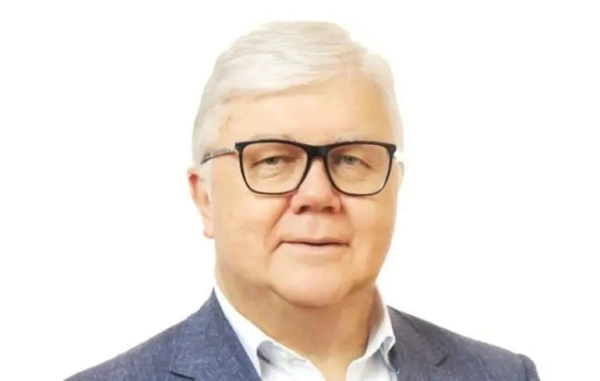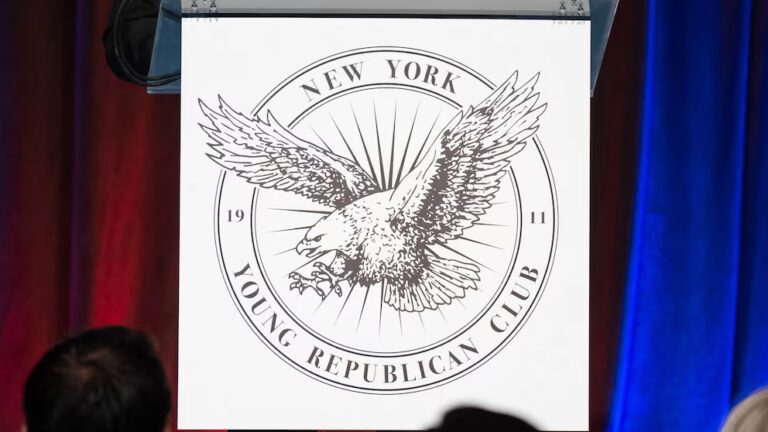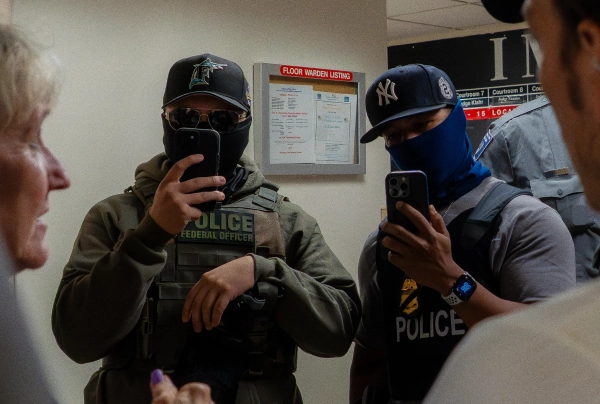The TAKE with Rick Klein
It's an obvious enough point that former President Donald Trump broke and then rewrote the traditional rules of politics in ways that are still being felt inside of both major parties.
What's becoming more apparent is the extent to which different Republican candidates are taking different lessons of the Trump era and applying them to their unique circumstances. They're testing intraparty loyalties and assumptions along the way, much like Trump himself.
Georgia Senate candidate Herschel Walker is in defiance-and-denial mode as he digs in on a scandal that puts him at odds with the mother of one of his children as well as one of his sons.
"Yes, she's lying. Yeah, she's lying. Yes, she's lying," Walker told ABC News' Linsey Davis on Tuesday, referring to the woman who claims he paid for her to get an abortion in 2009 and whom, he now acknowledges, is the mother of one of his children.
Trump's approach toward the news is a lesson internalized by a range of GOP campaigns — manifesting itself in part with candidates like Pennsylvania's Doug Mastriano who echo his periodic media hostility by largely, if not entirely, avoiding interviews with mainstream outlets.
But Trump also talked to basically any news organization who would have him during his 2015-2016 campaign. Embracing a similar ubiquity, in Pennsylvania, Trump-backed Senate candidate Mehmet Oz's campaign pushed to have far more debates than the one Democrat John Fetterman agreed to.
And in Arizona on Wednesday — the first day of early voting in the state — gubernatorial candidate Kari Lake, a former TV news anchor who regularly talks to the press, will appear solo for an interview on an Arizona PBS station. It would have been a debate, except her Democratic opponent, Katie Hobbs, rejected the invitation, saying that facing off against a "conspiracy theorist" on television would "make Arizona the subject of national ridicule."
That leads to another important point about the lessons derived from Trump. His lies and misleading statements about the last election have become something close to boilerplate for Republican candidates, even as some of them minimize that part of their pitch to voters in the final stretch.
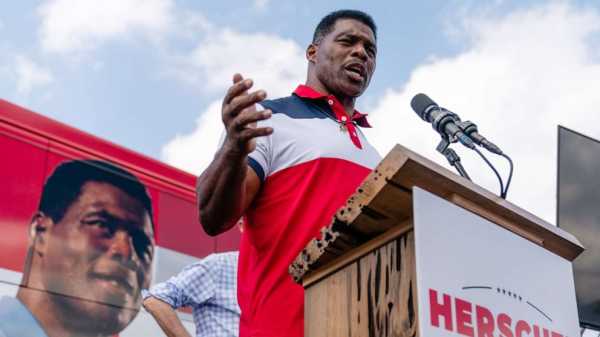
Georgia Republican Senatorial candidate Herschel Walker speaks at a campaign event in Carrollton, Ga., Oct. 11, 2022.Elijah Nouvelage/Getty Images
The RUNDOWN with Averi Harper
While Republicans hammer Democrats on the economy, including the high cost of living and fears of a recession, Democrats are ramping up economic messaging of their own focused on programs critical to the nation's social safety net — Social Security and Medicare.
Democratic politicians have been issuing stark warnings to voters about the future of the programs that they claim would be put in jeopardy if the GOP takes control of Congress.
"They're coming after your Social Security and Medicare," President Joe Biden said during remarks on Friday in Maryland.
Biden referred then to Florida Sen. Rick Scott, chair of the National Republican Senatorial Committee, and Scott's agenda proposed earlier this year. In his "Rescue America" plan, Scott called for federal legislation to "sunset" every five years. That would include the legislation that authorizes Social Security and Medicare.
In response to backlash about his plan, Scott has said he wants to "fix" the programs.
Democratic groups have also lobbed similar criticism at House GOP candidates in competitive districts. For example, in New Hampshire, the Democratic Congressional Campaign Committee aired an ad criticizing Karoline Leavitt after she floated the idea of privatizing Social Security (while grandfathering in those who have already paid into the program). The DCCC called the former Trump aide "too extreme."
The committee likewise has aired ads hitting GOP candidates on Social Security and Medicare in battlegrounds including Georgia, Michigan and Pennsylvania.
It's a message that could help mobilize voters 65 and older for whom these programs could be immediately important. According to the latest ABC News/Washington Post poll, 84% of voters 65 and up said they were "absolutely certain to vote" in November's elections — a number that outpaces younger groups.
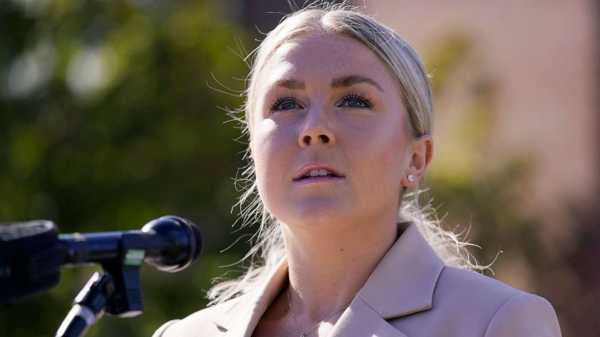
New Hampshire Republican 1st Congressional District candidate Karoline Leavitt attends a campaign event in Manchester, N.H., Sept. 29, 2022.Charles Krupa/AP, FILE
The TIP with Alisa Wiersema
Voting administration hurdles plagued elections officials two years ago — leading administrators in some key states to now set expectations weeks in advance for when this year's Election Day results will be tallied.
Pennsylvania's acting Secretary of State Leigh Chapman told reporters on Tuesday that it's unlikely the state will have official results on Nov. 8, ABC News' Will McDuffie reports. The update signals a looming scenario that could resemble the days-long process of vote tabulation that occurred in the 2020 races. That delay ultimately opened the door to false claims of election fraud by former President Trump and some of his supporters, including this year's Republican gubernatorial nominee in Pennsylvania, Doug Mastriano.
"Official results will be available within a few days," Chapman said Tuesday. "This delay does not mean anything nefarious is happening. It simply means that the process is working as it is designed to work in Pennsylvania and that election officials are doing their job to count every vote."
Under current law, ballot processing is prohibited from beginning before 7 a.m. on Nov. 8. That requirement has affected the speed of ballot tabulation as recently as the May primary elections, which was followed by a recount in the Republican race for the Senate nomination.
Echoing sentiments she expressed in the aftermath of that election, Chapman on Tuesday attributed the expected delay to a failure by the state's Republican-led legislature to pass a law allowing counties to begin canvassing mail-in ballots before Election Day.
The voting calendar could also present challenges for voters in Florida with the passage of Tuesday's voter registration deadline. The DeSantis administration did not extend the deadline despite many citizens grappling with the aftermath of Hurricane Ian.
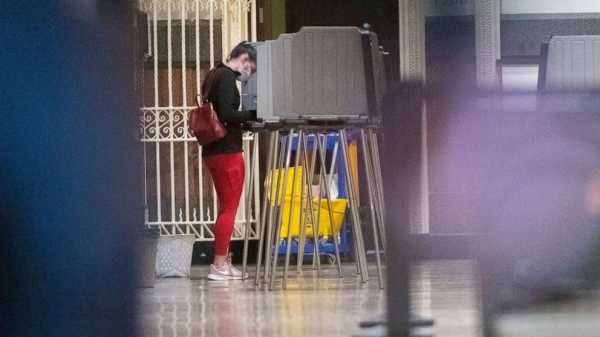
A woman casts her ballot at Philadelphia City Hall on the final day to vote early at a satellite polling station in Philadelphia, Oct. 27, 2020.Mark Makela/Getty Images, FILE


Power Trip
"Power Trip" follows 7 young reporters as they chase down candidates in the lead up to the midterms with George Stephanopoulos guiding them along the way.
Learn More
THE PLAYLIST
ABC News' "Start Here" Podcast. "Start Here" begins Wednesday morning with a look at the war in Ukraine amid new Russian missile attacks. ABC's Ian Pannell leads us off. Then ABC's Shannon Crawford reports on the Biden administration reevaluating its relationship with Saudi Arabia after oil cuts. And ABC's Linsey Davis discusses her interview with Herschel Walker. http://apple.co/2HPocUL
WHAT YOU NEED TO KNOW TODAY
- President Biden heads to Colorado to visit Camp Hale, a former U.S. Army outpost. He will designate the area as a new national monument and deliver remarks focused on conservation.
- Early voting begins in Ohio as ballots are also mailed to voters in Arizona.
- Arizona GOP gubernatorial nominee Kari Lake appears at what was intended to be a debate; her opponent, Democratic Secretary of State Katie Hobbs, declined to attend.
Sourse: abcnews.go.com
